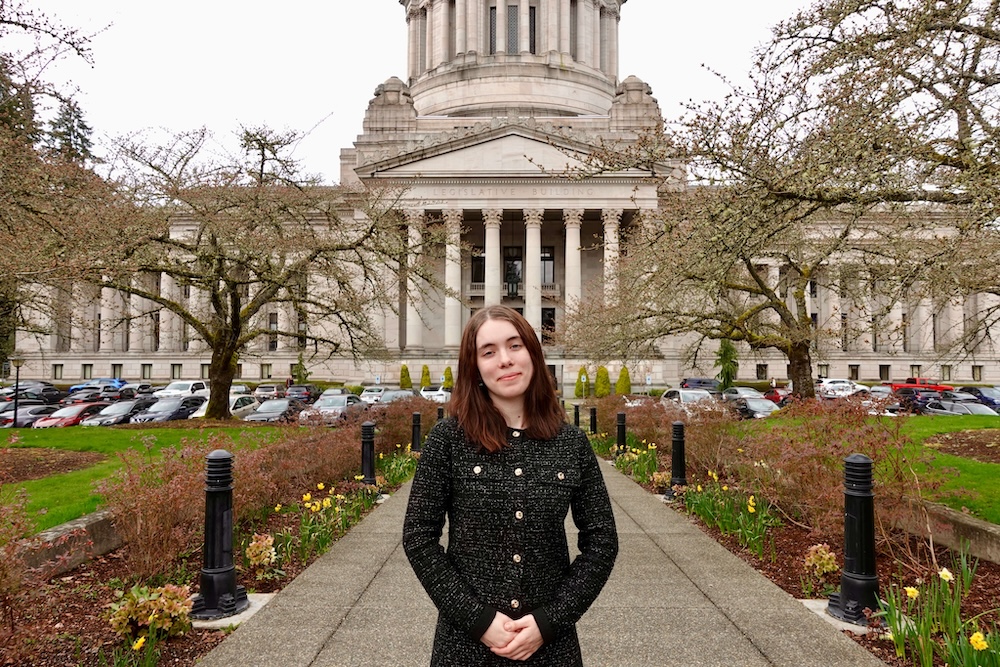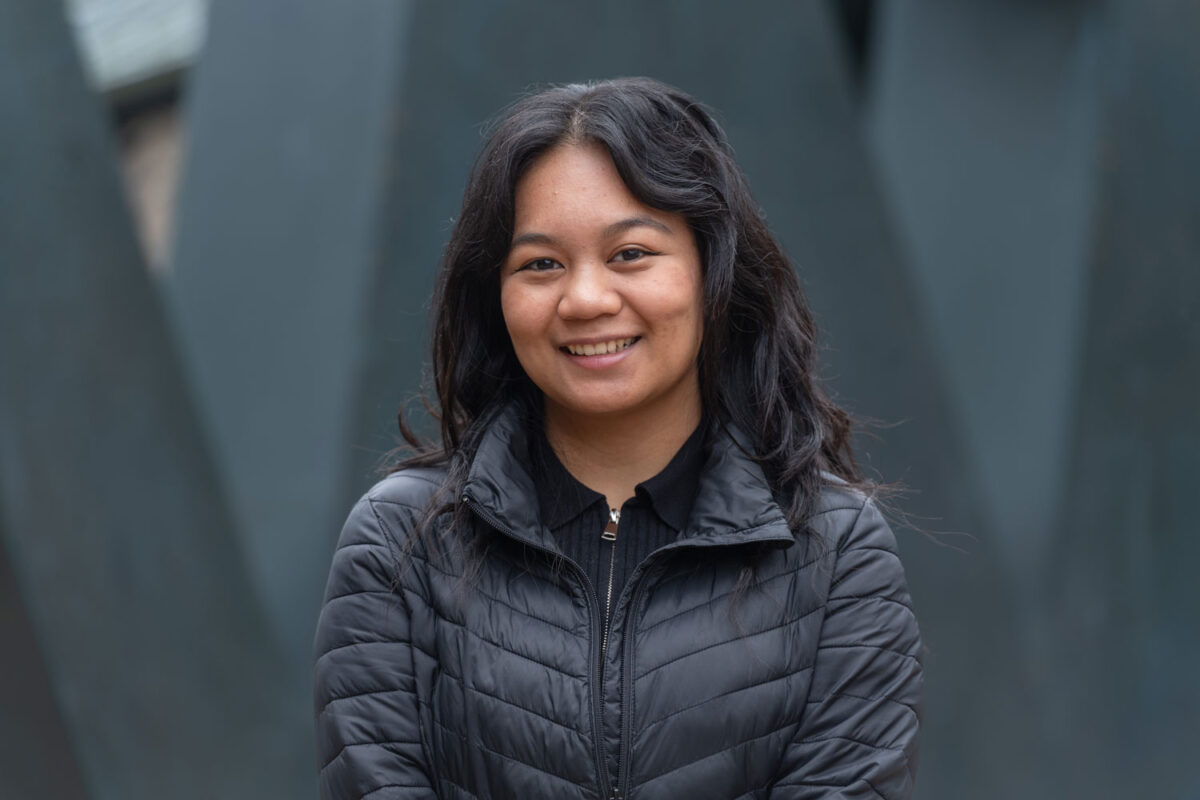

Image credit at the bottom of article
Roberts collaborates with Macklemore
By Douglas Esser
Macklemore and Ryan Lewis recently released “White Privilege II,” a nearly 9-minute song that has sparked conversation and criticism across the country, in the music industry and right here on our campus.
University of Washington Bothell faculty member Georgia Roberts is a community collaborator on the new song that was released as a free download on the website http://www.whiteprivilege2.com/ . It is intended to explain how the duo is supporting Black Lives Matter, People's Institute for Survival and Beyond, Youth Undoing Institutional Racism & Freedom School, and Black Youth Project 100.
Now with the School of Interdisciplinary Arts and Sciences, Roberts answers questions about the song, her former student Ryan Lewis, Ben Haggerty, better known as Macklemore, and her role:
What is the song about?
The song is told from Ben’s perspective on the night of the non-indictment of Darren Wilson (the Ferguson police officer that killed Michael Brown).
Who is the song for?
I don’t know that you can actually set an “audience” for a song because you cannot predict beforehand how a song will or will not resonate with people. I think Ben wanted to stay as close as possible to narrating his own experience in the hopes that it would speak to his core fan base.
Why did Macklemore create it?
There are several interviews out that could be referenced here. Ryan and Ben (along with some of the other collaborators) talked with Sway, Jay Smooth from Colorlines and Ebro on Beats 1 Radio. In these interviews, they explain why they made the song. I’d rather not speak for them or their intention.
How did you get involved? What was your role as a collaborator?
I have known Ryan for several years. He took classes with me when I taught at the Seattle campus, and I was his senior thesis advisor. About a year and a half ago, he and Ben invited me to meet with them. They were in the midst of processing the previous two years, both in terms of their unexpected level of success and the subsequent backlash. I felt the most useful thing I could offer in those conversations was a way to get some critical perspective on how whiteness and masculinity have historically functioned within the larger social system, so I brought in readings. We read folks like WEB Du Bois, James Baldwin, Angela Davis and Cheryl Harris, among many others. We basically started a study group.
I didn’t hear the song until maybe a year after we started meeting, but I did give extensive feedback. Despite its title, I see the song pushing away from the limited notion of “white privilege” and toward a deeper understanding of white supremacy as a system. I personally don’t think the song is attempting to speak for anyone nor do I think it re-centers whiteness. I think the song argues that people who have been categorized as “white” in society, whether they are aware of it or not, are benefitting from racial inequality.
How does this engage UWB in the community? Is this part of discussions with students?
I teach classes in literature, hip hop history and Comparative Ethnic Studies. In all of the classes I teach, we talk about issues addressed in “White Privilege II.” For example, my hip hop and politics class is currently studying the history of the Black Panther Party. We are having conversations about systemic racism, police brutality and community activism. We don’t need this song to do that. But I can see how it might be useful in other academic settings where people are talking specifically about whiteness and cultural appropriation, and I’ll be interested to see how it gets used in those conversations.
Collaborating on this project has certainly stretched my understanding of community-based scholarship. As someone who studies and writes about popular culture, it’s much easier for me to be critical about what a popular artist is not doing and not saying than it is to work with them collaboratively and encourage a more critical approach. In other words, I have largely been trained toward noticing only what’s absent. It’s easier to analyze and write from that critical place. But the teacher in me firmly believes that another world is possible. My hope is that Ben and Ryan will continue to push themselves and others around them to read, to study and to use their material resources for social equity and community accountability.
Image by thecomeupshow – Macklemore- The Heist Tour Toronto Nov 28 Uploaded by russavia, CC BY 2.0, https://commons.wikimedia.org/w/.php?curid=24694502



